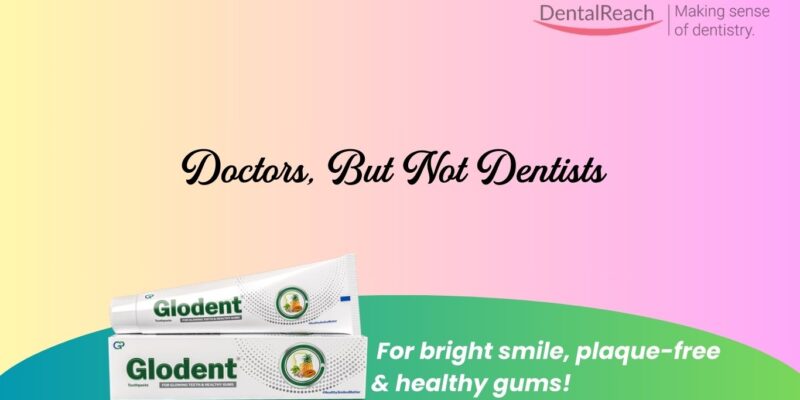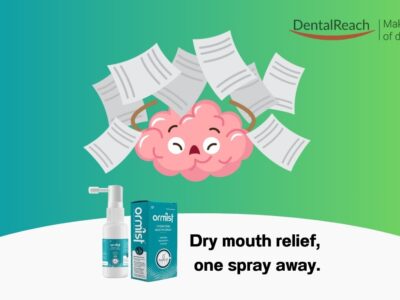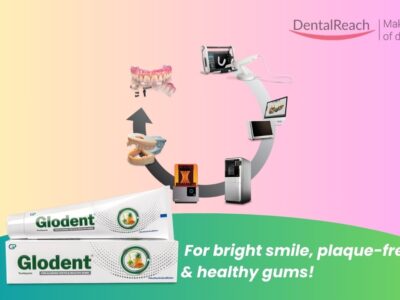Editorial for Volume 6, Issue 6
Dentists are doctors of the oral cavity, but innumerable times have been subjected to hearing this one line – “You are a dentist, not a doctor.” Its time to turn the tables in this conversation and gear up for the statement not been posed to any doctor before. Let us explore the theme of our current issue –
“Doctors, But Not Dentists: Medical Minds That Influence Oral Health”
🧠 1. Neurologists and the Dental Connection: Understanding Orofacial Pain
The nexus between neurology and dentistry in managing orofacial pain is stronger than ever, driven by both clinical necessity and a growing body of interdisciplinary research.
For dentists, understanding neurological contributions to facial pain – from the firing of trigeminal nerve fibers in trigeminal neuralgia to the central sensitization underlying migraines – can prevent misdiagnoses and unnecessary treatments.
For neurologists, recognizing dental and musculoskeletal causes of facial pain ensures that no organic dental problem is overlooked in a patient with presumed “atypical facial pain.”
Explore how neurologists contribute to diagnosing and treating orofacial pain, migraines, and neuralgia that affect dental practice by reading up referral cases and diagnostic overlaps.
💉 2. ENT Specialists and Their Role in Dental Health
Oral health can influence ENT conditions and vice versa, meaning collaboration between dentists and ENT specialists is often beneficial.
For example, sinus conditions can masquerade as dental problems and vice versa, leading to misdiagnoses if evaluated in isolation.
ENT doctors often deal with sinus issues, mouth breathing, and sleep apnea—conditions that impact dental treatments. This article explores how ENT specialists contribute to dental patient care across these domains by highlighting collaborative case studies with dentists.
🫁 3. Pulmonologists & Dentists: Partners in Sleep Apnea Management
Obstructive sleep apnea (OSA) management has evolved into a paradigm of interdisciplinary collaboration, with pulmonologists and dentists forming a critical partnership to address the multifaceted nature of this condition.
This synergy leverages the pulmonologist’s expertise in airway physiology and the dentist’s proficiency in oral device mechanics, creating a comprehensive approach that improves therapeutic outcomes.
This article discusses how pulmonologists and dentists work together in managing obstructive sleep apnea using oral appliances by using case examples and learning about device innovations.
🦴 4. Orthopedic Surgeons in TMJ Disorders and Maxillofacial Trauma
Contemporary evidence demonstrates that the function of the TMJ disc is more important than its position. This understanding parallels orthopedic approaches to other joints, where function often supersedes perfect anatomical alignment as a treatment goal.
Maxillofacial trauma presents a critical domain where dental and orthopedic expertise naturally intersect. Studies show that orthopedic injury is the most frequent associated injury in patients with facial trauma
This report explores how dental professionals can effectively collaborate with orthopedic specialists to enhance treatment protocols, streamline patient care pathways, and achieve more comprehensive healing for patients with TMJ disorders and maxillofacial injuries.
🧬 5. Geneticists and Periodontics: How Genes Influence Oral Health
Genetics is influencing how we understand periodontal disease, oral cancers, and even enamel defects.
Geneticists have identified specific genetic markers associated with aggressive periodontitis, discovered gene variants that affect enamel formation, and mapped genetic pathways that increase oral cancer risk.
These discoveries are gradually transforming clinical practice, with dentists increasingly considering genetic factors when developing treatment plans and preventive strategies for patients with family histories of specific oral conditions.
Explore what geneticists have to say on what dentists should know.
👶 6. Pediatricians’ Insights on Early Childhood Oral Health
Pediatricians are often the first to notice oral health issues.
They occupy a unique position as frontline healthcare providers who regularly interact with children during their formative years when oral health habits are established. Their potential to impact oral disease prevention through early detection, parent education, and timely referrals is substantial yet not fully realized.
Explore how stronger ties between pediatricians and pediatric dentists can improve prevention strategies.




















Comments